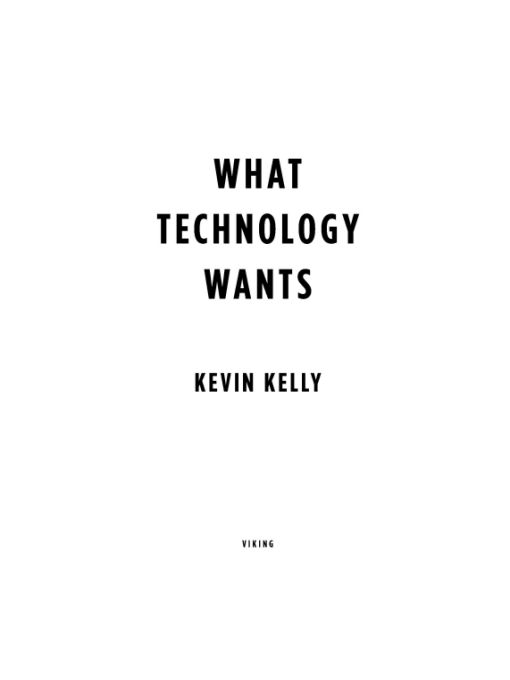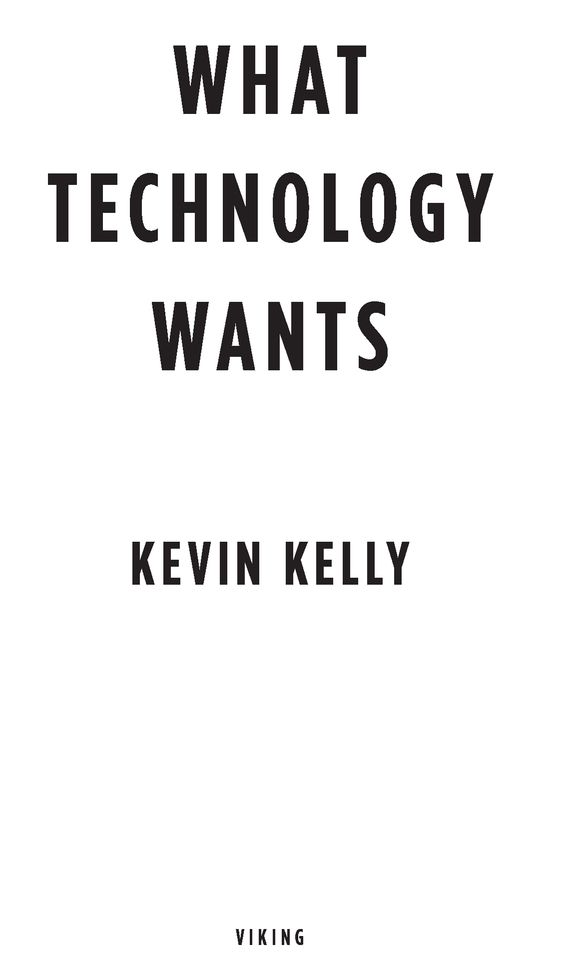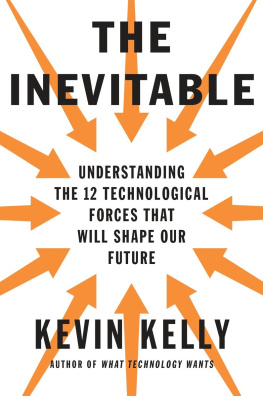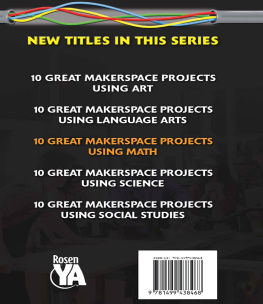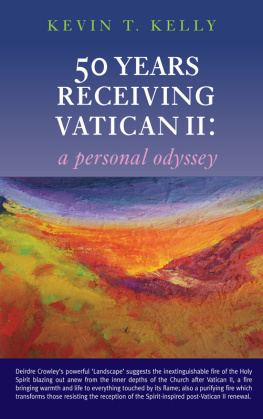Table of Contents
ALSO BY KEVIN KELLY
Out of Control: The New Biology of Machines, Social Systems,
and the Economic World
New Rules for the New Economy: 10 Radical Strategies for
a Connected World
Asia Grace
My Question
For most of my life I owned very little. I dropped out of college and for almost a decade wandered remote parts of Asia in cheap sneakers and worn jeans, with lots of time and no money. The cities I knew best were steeped in medieval richness; the lands I passed through were governed by ancient agricultural traditions. When I reached for a physical object, it was almost surely made of wood, fiber, or stone. I ate with my hands, trekked on foot through mountain valleys, and slept wherever. I carried very little stuff. My personal possessions totaled a sleeping bag, a change of clothes, a penknife, and some cameras. Living close to the land, I experienced the immediacy that opens up when the buffer of technology is removed. I got colder often, hotter more frequently, soaking wet a lot, bitten by insects faster, and synchronized quicker to the rhythm of the day and seasons. Time seemed abundant.
After eight years in Asia, I returned to the United States. I sold what little I had and bought an inexpensive bicycle, which I rode on a 5,000-mile meander across the American continent, west to east. The highlight was gliding through the tidy farmland of the Amish in eastern Pennsylvania. Amish communities were the closest thing I could find on this continent to the state of minimal technology I had experienced in Asia. I admired the Amish for their selective possessions. Their unadorned homes were square bundles of contentment. I felt my own life, unencumbered by fancy technology, was in parallel to theirs, and I intended to keep technology in my life to a minimum. I arrived on the East Coast owning nothing but my bicycle.
Growing up in suburban New Jersey in the 1950s and 1960s, I was surrounded by technology. But until I was 10, my family had no television, and when it did arrive in our household, I had no appetite for it. I saw how it worked on my friends. The technology of TV had a remarkable ability to beckon people at specific times and then hold them enthralled for hours. Its creative commercials told them to acquire more technologies. They obeyed. I noticed that other bossy technologies, such as the car, also seemed to be able to get people to serve them, and to prod them to acquire and use still more technologies (freeways, drive-in theaters, fast food). I decided to keep technology to a minimum in my own life. As a teenager, I was having trouble hearing my own voice, and it seemed to me my friends true voices were being drowned out by the loud conversations technology was having with itself. The less I participated in the circular logic of technology, the straighter my own trajectory could become.
When my cross-country bike ride ended, I was 27. I retreated to an out-of-the-way plot of cheap land in upstate New York with plenty of woods and no building codes. With a friend, I cut down oak trees to mill into lumber, and with these homemade beams we erected a house. We nailed each cedar shake onto the roof one by one. I have vivid memories of hauling hundreds of heavy rocks to build a retaining wall, which the overflowing creek tore down more than once. With my own hands I moved those stones many times. With yet more stones we assembled a huge living-room fireplace. Despite the hard work, those stones and oak beams filled me with Amish contentment.
But I was not Amish. If you were going to cut down a huge tree, I decided, it was a good idea to use a chain saw. Any forest tribesman who could get his hands on one would agree. Once you gain your voice around technology and become more sure of what you want, it becomes obvious that some technologies are simply superior to others. If my travels in the old world had taught me anything, it was that aspirin, cotton clothing, metal pots, and telephones are fantastic inventions. They are good. People everywhere in the world, with very few exceptions, grab them when they can. Anyone who has ever held a perfectly designed hand tool knows that it can lift your soul. Airplanes had stretched my horizons; books had opened my mind; antibiotics had saved my life; photography had ignited my muse. Even the chain saw, which can cleanly slice through knotty burls too tough for a hand ax, had instilled in me a reverence for the beauty and strength of wood no other agent in the world could.
I became fascinated by the challenge of picking the few tools that might elevate my spirit. In 1980 I freelanced for a publication (the Whole Earth Catalog) that used its own readers to select and recommend appropriate tools picked out of the ocean of self-serving manufactured stuff. In the 1970s and 80s, the Whole Earth Catalog was, in essence, a user-generated website before the web, before computers, employing only cheap newsprint. The audience were the authors. I was thrilled by the changes that simple, well-selected tools could provoke in peoples lives.
At the age of 28, I started selling mail-order budget travel guides that published low-cost information on how to enter the technologically simple realms most of the planet lived in. My only two significant possessions at the time were a bike and sleeping bag, so I borrowed a friends computer (an early Apple II) to automate my fledgling moonlight business, and I got a cheap telephone modem to transmit my text to the printer. A fellow editor at the Whole Earth Catalog with an interest in computers slipped me a guest account that allowed me to remotely join an experimental teleconferencing system being run by a college professor at the New Jersey Institute of Technology. I soon found myself immersed in something altogether bigger and wilder: the frontier of an online community. It was a new continent more alien to me than Asia, and I began to report on it as if it were an exotic travel destination. To my immense surprise, I found that these high-tech computer networks were not deadening the souls of early users like me; they were filling our souls. There was something unexpectedly organic about these ecosystems of people and wires. Out of complete nothingness, we were barn-raising a virtual commonwealth. When the internet finally came along a few years later, it seemed almost Amish to me.
As computers moved to the center of our lives, I discovered something I had not noticed about technology before. In addition to technologys ability to satisfy (and create) desires, and to occasionally save labor, it did something else. It brought new opportunities. Right before my eyes I saw online networks connect people with ideas, options, and other people they could not possibly have met otherwise. Online networks unleashed passions, compounded creativity, amplified generosity. At the very cultural moment when pundits declared that writing was dead, millions began writing online more than they ever had written before. Exactly when the experts declared people would only bowl alone, millions began to gather together in large numbers. Online they collaborated, cooperated, shared, and created in myriad unexpected ways. This was new to me. Cold silicon chips, long metal wires, and complicated high-voltage gear were nurturing our best efforts as humans. Once I noticed how online computers stirred the muses and multiplied possibilities, I realized that other technologies, such as automobiles, chain saws, biochemistry, and yes, even television, did the same in slightly different ways. For me, this gave a very different face to technology.

